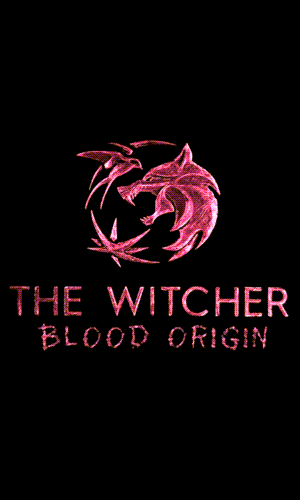The Witcher: Blood Origin
 Everything is better with Michelle Yeoh, which is just as well because without her this Witcher spin-off would have been even more of a disaster. Blood Origin is set in the deep past of the Witcher universe. It tells of how the monoliths came to be, of the events that caused the Conjunction of the Spheres, of the arrival of humans and other monsters into the world, and of the creation of the first Witcher.
Everything is better with Michelle Yeoh, which is just as well because without her this Witcher spin-off would have been even more of a disaster. Blood Origin is set in the deep past of the Witcher universe. It tells of how the monoliths came to be, of the events that caused the Conjunction of the Spheres, of the arrival of humans and other monsters into the world, and of the creation of the first Witcher.
That’s a lot to pack in, especially in four hour-long episodes. Apparently it was originally intended to be six, which may help explain the poor plotting, but I’m sure they could have done better with the time they had if they hadn’t felt the need to fill it with sex and gore to keep the dudebro audience happy.
Alongside the aforementioned plot points, the story also includes King Alvatir of Xin’trea (Cintra as we know it) trying to bring peace to the war-torn Continent. He gets deposed by his sister, Éile, backed by the commander of the armies and the chief druid. The latter is named Balor, which is odd because he has two eyes, and he’s the main villain. We keep getting told that he’s upset because the Xin’trean nobility look down on him as a commoner, but the only evidence of this is people saying it. Eredin, the general, is gay, and apparently this is looked down on too. The message of the series appears to be that Alvatir was a decent guy who wanted peace, but really he was as bad as the villains because he was a king.
There are things called Clans that many of the heroes belong to, and which are very important to their motivations, but it is never explained what they are all about. I’m assuming that people who have read the Witcher books will know. Of course Witcher fans are complaining bitterly that the series deviates too far from the books, but then they always do that.
Into this mess comes a rag-tag group of heroes (where have I heard that before?). One of them is Scían, played by Michelle Yeoh, who is a sort of elf version of the swordmistress character from Irish mythology (Scáthach and her sister, Aife). She has blue contact lenses, which is a bit weird, but otherwise she does what Michelle Yeoh does.
There are seven heroes in our adventuring group, several of who exist only to fill roles in the plot. The only other one who is worth your attention is Meldof, a dwarf woman who has a warhammer named after her dead wife, Gwen. I want to see Francesca Mills in more TV and movies, because she’s excellent.
I’d advise you not to bother with this series, even if you are a fan of the main timeline, except that it is not entirely stand-alone. To begin with, there is a framing story in which Jaskier, who spends most of his appearances in the story stumbling around a blood-strewn battlefield, gets told the events of the plot and is encouraged to write a song about it. I’m sure he will do a better job than the scriptwriters. Given that the monoliths were a key part of Season 2, the fact that Jaskier now knows how they came to be may well be important to Season 3. Also, right at the end, there is a short scene connecting the events of Blood Origin to Ciri.
Netflix, you can do better than this.